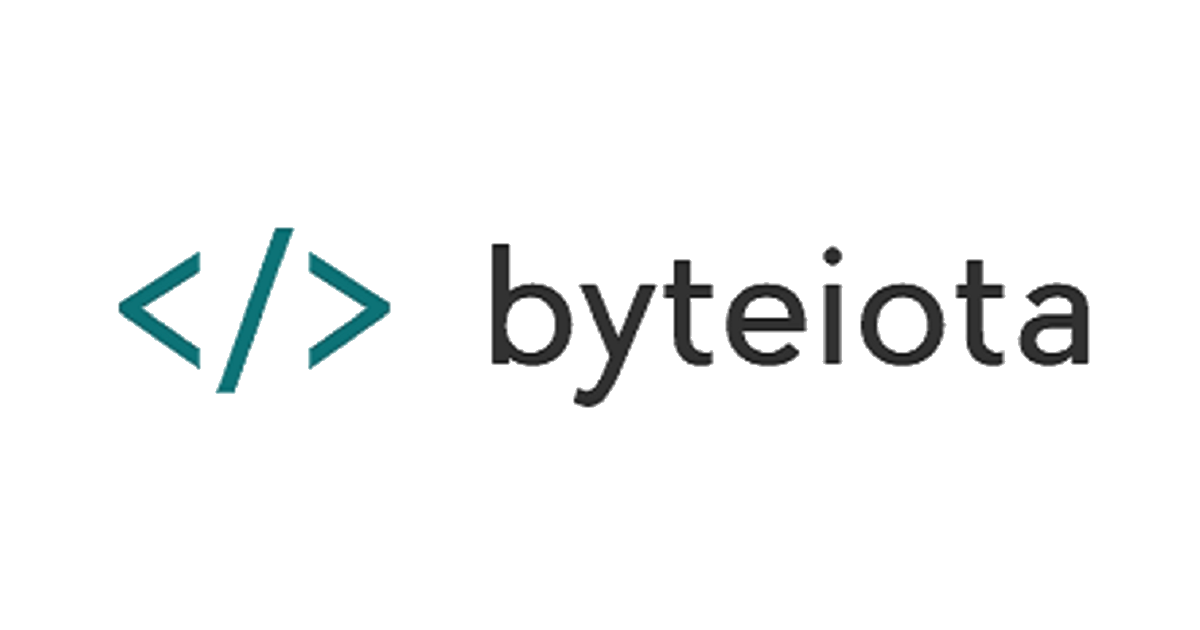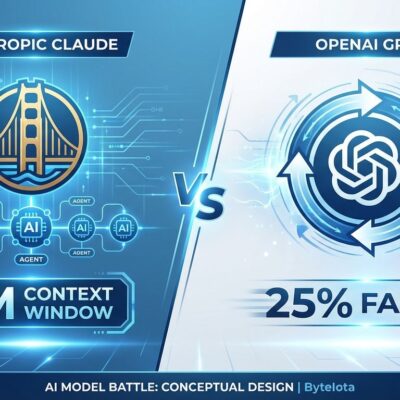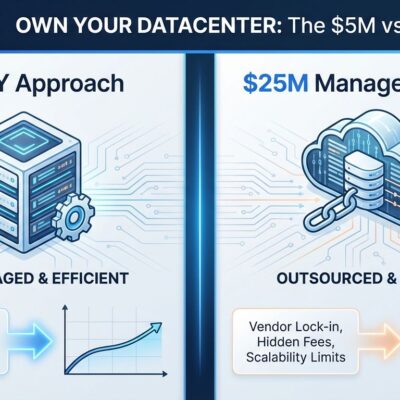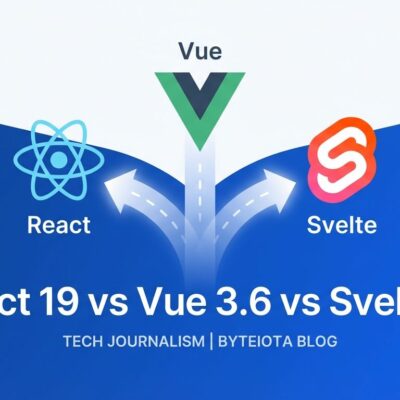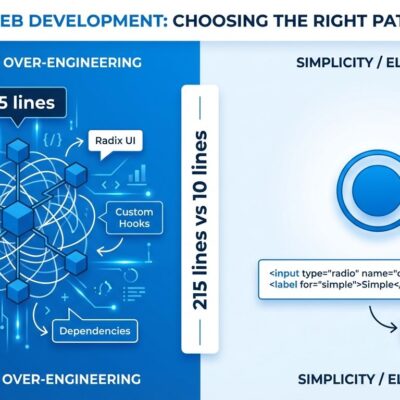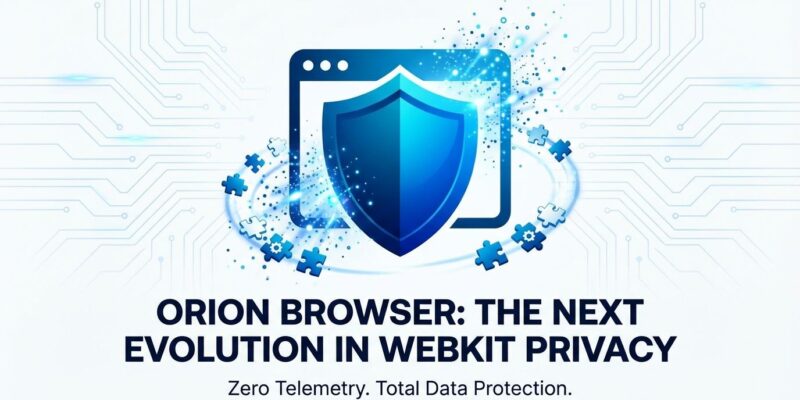
After six years of development, Kagi’s Orion browser officially hit version 1.0 for macOS on November 25, 2025, marking a rare production milestone for a privacy-first WebKit browser. Built by a team of just six developers—starting with a single developer for the first two years—Orion combines Safari’s WebKit engine with Chrome and Firefox extension support, offering zero telemetry and no ad-tech infrastructure to challenge the Chromium monopoly dominating 70% of the browser market.
Six Developers Challenge Google’s Browser Monopoly
One developer for two years. Now six total. Google has thousands. Orion still shipped 1.0.
That’s the David vs Goliath story behind Orion’s production release. The team manually ported hundreds of WebExtensions APIs—APIs never designed for WebKit—to achieve roughly 70% coverage of Chrome and Firefox’s extension ecosystem. The result? Over 1 million downloads and 2,480 paid subscribers willing to bet on a browser built by a team you could fit in a minivan.
This matters because it proves building production browsers isn’t exclusive to tech giants. While Chrome teams measure headcount in thousands and Firefox relies on hundreds of developers, Orion demonstrates that small teams with focus can compete. For indie software advocates, this validates what Silicon Valley often denies: you don’t need venture capital and 200 engineers to build competitive software.
WebKit Performance Meets Chrome Extension Ecosystem
Orion solves Safari’s biggest limitation: extension support. Safari users have wanted Chrome extensions for years. Chrome users have wanted to escape Google’s tracking for years. Orion offers both without the trade-offs.
The technical achievement here is underrated. WebKit was never designed for Chrome extensions. Kagi’s team spent years porting WebExtensions APIs that fundamentally expected Chromium under the hood. The ~70% API coverage sounds incomplete until you realize that represents hundreds of APIs manually adapted to an incompatible engine. Most extensions work—uBlock Origin, Bitwarden, LastPass run fine. Complex password managers hit the gaps in that remaining 30%, but for most users, the coverage delivers.
This positioning is unique in the browser market. Safari gives you WebKit privacy with limited extensions. Chrome gives you full extension support with Google tracking baked in. Brave gives you privacy on Chromium (still feeding the monopoly). Orion is the only option combining WebKit’s Apple hardware optimization with Chrome’s extension ecosystem while maintaining absolute zero telemetry.
Benchmarks Prove Privacy Doesn’t Mean Slow
“Privacy browsers are slow” is a myth Orion demolishes. On an M3 MacBook Pro, Orion scores over 600 on Speedometer 2.1—slightly ahead of Safari and significantly faster than Chrome or Firefox on Apple hardware. Memory usage sits at 2x-3x less than Chrome/Firefox after closing tabs. Battery life matches or exceeds Safari while keeping Chrome at bay.
All this performance comes with zero telemetry. No analytics. No identifiers. No tracking. Kagi treats user data as a liability, not an asset. As founder Vlad Prelovac puts it in an interview with 1Password: “You can pay for Kagi with your wallet, not with your data.” That’s not marketing speak—the browser genuinely collects nothing.
The paid model matters here. Orion ships free, but Kagi offers a Supporter subscription ($5/month or $50/year) and Lifetime access ($150 one-time). Those 2,480 paid subscribers validate that users will pay for genuine privacy. The ad-funded browser race to the bottom isn’t the only viable business model.
Breaking Chromium’s 70% Stranglehold (With Caveats)
Chrome controls 61-70% of the global browser market. Add Chromium-based “alternatives” like Edge (6.8%), Brave (1.1%), and Opera (~2%), and you’re looking at roughly 80% of web traffic running on Google’s engine. Firefox is declining to 3.2%. WebKit holds 19.4%, almost entirely from Safari being the iOS default.
Orion’s production release matters for browser diversity. WebKit needs viable non-Safari options to remain relevant. Orion won’t dethrone Chrome, but 1 million+ downloads and growing shows demand exists for escaping the Chromium monoculture. For developers concerned about Google’s influence over web standards, Orion is a viable protest vote that actually works.
However, let’s be honest about limitations. That 70% extension API coverage means some extensions won’t work fully. iOS version has reported scrolling latency issues—the macOS experience is significantly more polished. Windows users wait until late 2026. These are real trade-offs. Test your critical extensions before switching. Orion is impressive for a 6-person team, but it can’t match Chrome’s polish or ecosystem breadth.
Key Takeaways
- Orion 1.0 proves small teams can still build production browsers—6 developers shipped what Google does with thousands, validating indie software outside the VC-funded model
- WebKit + Chrome extensions is unique market positioning that solves Safari’s limitations while escaping Chromium monopoly—no other browser offers this combination
- Performance matches/beats Safari (600+ Speedometer 2.1) with zero telemetry, destroying the myth that privacy browsers are slow or resource-heavy
- 70% extension API coverage means test your critical extensions first—most work (uBlock Origin, Bitwarden), complex ones may hit gaps, Windows support delayed until late 2026
- 1 million+ downloads and 2,480 paid subscribers validate demand for non-Chromium alternatives, proving paid privacy-first browser business models can work
Orion won’t replace Chrome overnight. But after six years, a 6-person team delivered a production browser that gives developers genuine choice. That’s worth celebrating.
